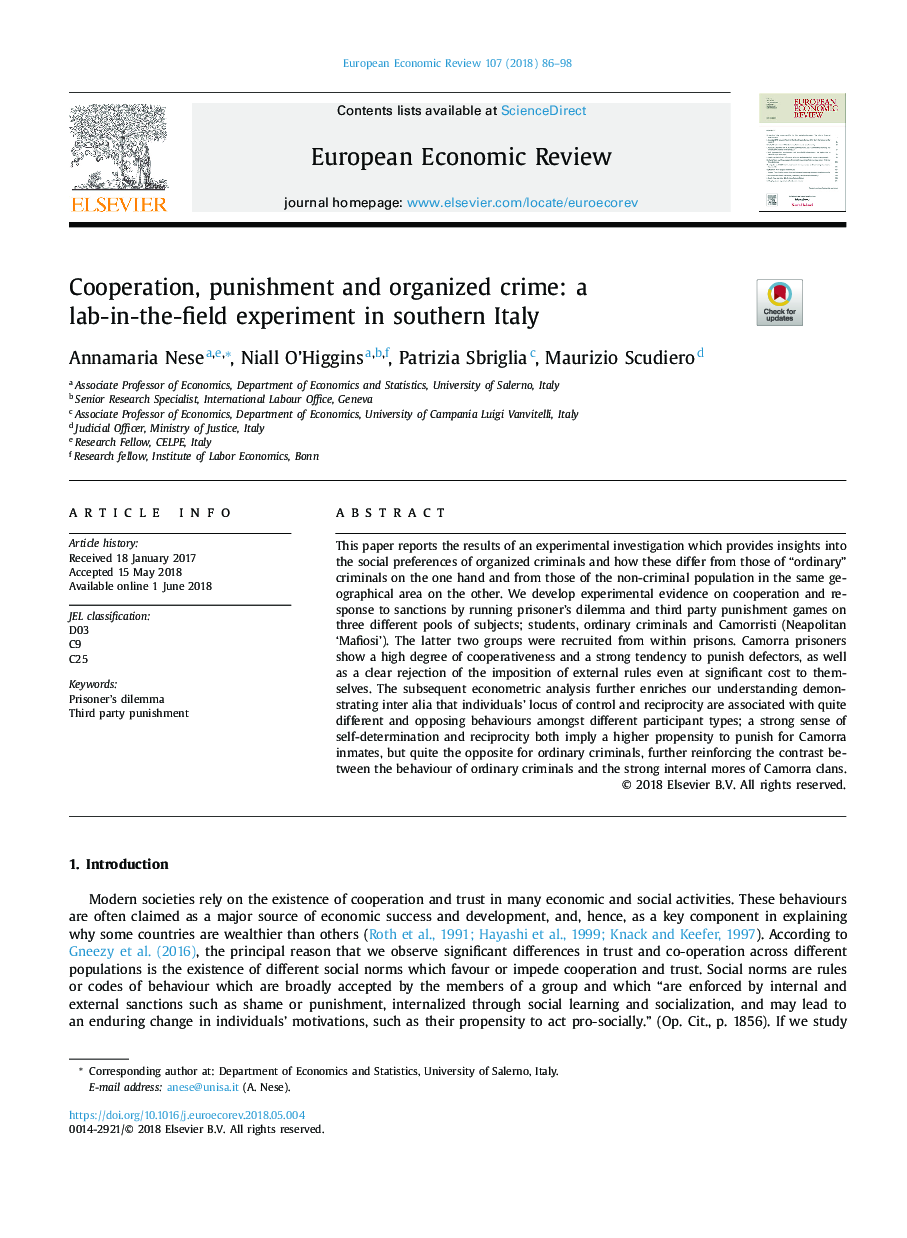| Article ID | Journal | Published Year | Pages | File Type |
|---|---|---|---|---|
| 7351380 | European Economic Review | 2018 | 13 Pages |
Abstract
This paper reports the results of an experimental investigation which provides insights into the social preferences of organized criminals and how these differ from those of “ordinary” criminals on the one hand and from those of the non-criminal population in the same geographical area on the other. We develop experimental evidence on cooperation and response to sanctions by running prisoner's dilemma and third party punishment games on three different pools of subjects; students, ordinary criminals and Camorristi (Neapolitan 'Mafiosi'). The latter two groups were recruited from within prisons. Camorra prisoners show a high degree of cooperativeness and a strong tendency to punish defectors, as well as a clear rejection of the imposition of external rules even at significant cost to themselves. The subsequent econometric analysis further enriches our understanding demonstrating inter alia that individuals' locus of control and reciprocity are associated with quite different and opposing behaviours amongst different participant types; a strong sense of self-determination and reciprocity both imply a higher propensity to punish for Camorra inmates, but quite the opposite for ordinary criminals, further reinforcing the contrast between the behaviour of ordinary criminals and the strong internal mores of Camorra clans.
Related Topics
Social Sciences and Humanities
Economics, Econometrics and Finance
Economics and Econometrics
Authors
Annamaria Nese, Niall O'Higgins, Patrizia Sbriglia, Maurizio Scudiero,
